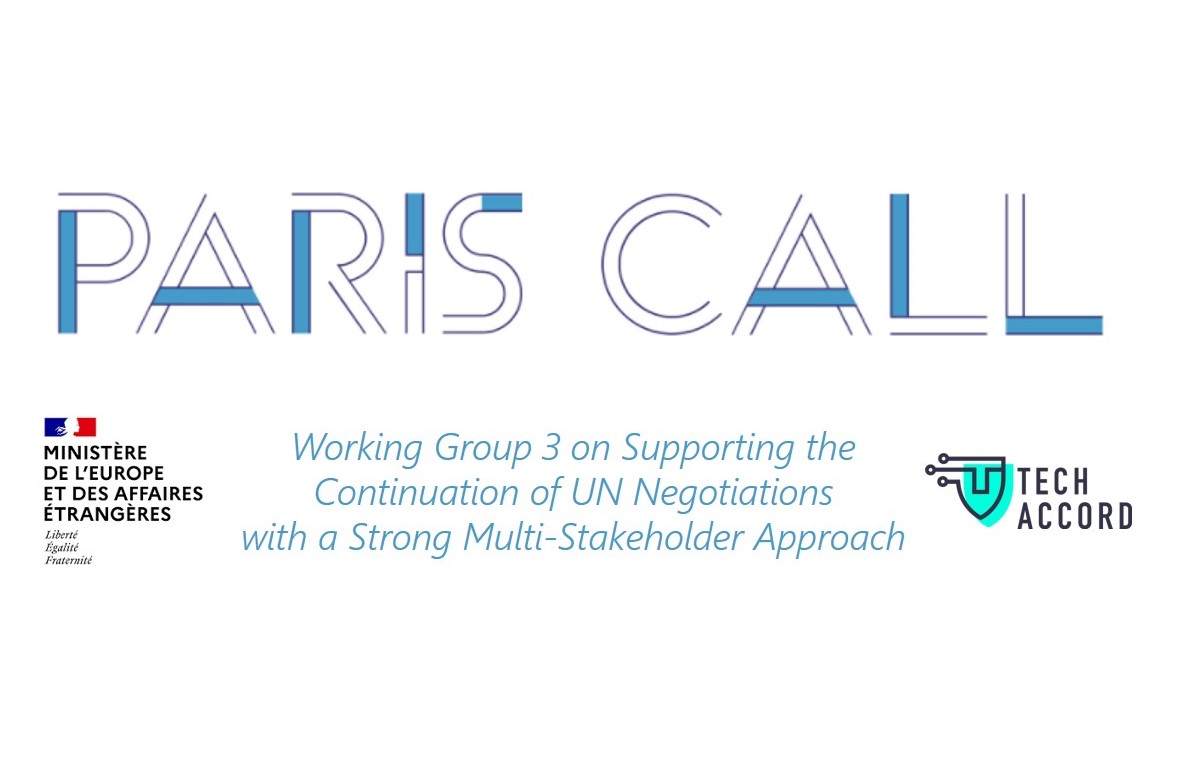Over two years ago, the Paris Call for Trust and Security in Cyberspace launched and united governments, industry, civil society, and academia on a shared path towards greater stability in cyberspace. In recent months, the largest multi-stakeholder agreement on cybersecurity accelerated its activity with the launch of six working groups, which look to advance and implement the Paris Call principles. The Cybersecurity Tech Accord is proud to lead working group 3, which aims to support the continuation of United Nations (UN) negotiations with a strong multi-stakeholder approach.
We were also excited to welcome so many participants across the multi-stakeholder community to our kickoff session at the end of March. Ensuring multi-stakeholder inclusion in UN conversations on cybersecurity is essential; however, it is also a thorny issue. We need to identify ways to bring together diverse stakeholders with divergent interests, resources, and abilities from across the globe. Therefore, having these conversations as a community is crucial to ensure all solutions are inclusive.
In our initial conversation, we agreed to host several deep-dive sessions this year, to investigate multi-stakeholder cooperation in fields other than cybersecurity, explore the proposed Program of Action, and assess what we learned from discussions on the Open-Ended Working Group over the past two years. Beyond that, we will promote this work as far and wide as possible, including at RightsCon 2021 in June.
The first of these meetings will take place at the end of May (register HERE). We are grateful to welcome ICT4Peace to the forum, where they will share their experiences and expertise related to the International Code of Conduct for Private Security Service Providers (ICoC), a multi-stakeholder initiative that sets out international human rights principles and standards for the private security industry. We will then hear from different stakeholders that have had exposure to multi-stakeholder governance processes and learn about their experience, lessons learned and mechanisms that can be applied to the current discussions on cyber.
We, however, do not want to limit ourselves to events as we recognize that not everyone can attend at the designated time. Therefore, we invite you to provide feedback and comments to the questions below to inform the recommendations we intend to issue at the Paris Peace Forum in November.
- Principles for meaningful multi-stakeholder participation: Openness, inclusivity and transparency were mentioned as the basis for meaningful multi-stakeholder participation in the UN discussions on cyber. Are there any other principles that should be taken into account?
- Accreditation: How should the process of accreditation work? Please explain the rationale behind your proposal and share any examples of accreditation processes that ensure both inclusivity and relevance of multi-stakeholder input.
- Sharing of information: What mechanisms should be established to ensure effective sharing of information between governments and non-governmental stakeholders on the discussions state of play?
- Opportunity to provide input: What mechanisms should be established for stakeholders to provide feedback?
- Examples of multi-stakeholder governance: Are there examples of multi-stakeholder governance that should be considered or models that can be applied to the UN discussions on cyber?
- Multi-stakeholder support in the implementation phase: How can we allow for meaningful exchange between non-governmental stakeholders and countries in need of support in the implementation phase, especially concerning emerging economies?
Please send your contributions to [email protected]. We look forward to hearing from you!

